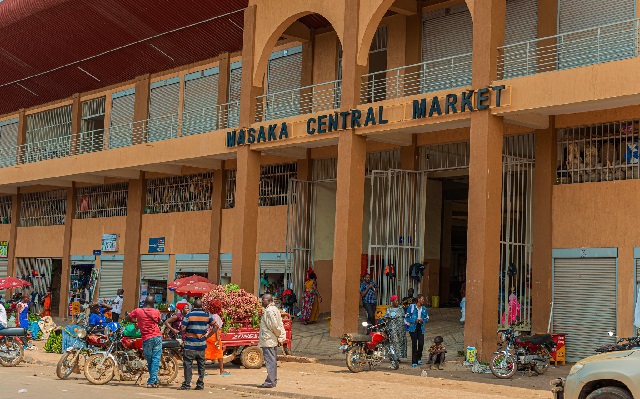Business
Vendors in New Govt Markets Frustrated by Power Disruptions, Theft
Vendors operating in newly constructed modern markets across various urban councils in Uganda are struggling to profit from the huge government investments, citing persistent power outages and rampant theft. The government, using loans from the African Development Bank (ADB) and the World Bank, rolled out the Markets and Agricultural Trade Improvement Program (MATIP) in two phases.
The program aimed to construct at least one modern market in each urban local government to offer decent workspaces for agro-related vendors, improve urban infrastructure, restore order in city trade, and expand local revenue bases. Launched in 2013, the initiative raised hopes among vendors for improved business environments. However, many now say their expectations remain unmet due to unreliable electricity supply and security issues.
Frank Tumwebaze, Chairperson of the Vendors’ Association at Masaka City Central Market in Nyendo-Mukungwe Division, says frequent power disruptions are making the market unsustainable. He explains that the market has an unreliable electricity supply, leading some vendors—particularly those dealing in perishable goods—to abandon their stalls. “The market was connected to a common power meter from which everyone is charged,” Tumwebaze says. “But our greatest frustration is that after collecting the money digitally, it takes too long to reach the power company, leading to repeated disconnections.”
He adds that a private individual was contracted by the Ministry of Local Government to collect electricity fees, but delayed remittances have led to growing arrears and disconnections. Elizabeth Nakayiza, one of the affected vendors, says poor lighting has shortened their working hours and exposed the market to theft.
Michael Mulindwa Nakumusana, the Nyendo-Mukungwe Division Chairperson, says the Ministry retained control over utility management without consulting vendors. He notes that urban councils are now considering a joint petition to the Ministry of Local Government, demanding that power bill management be decentralized.
Richard Eyaru, the Town Clerk of Moroto Municipal Council, blames the power challenges on a complex centralized metering system. He says the municipality is already engaging UEDCL to decentralize bill management, allowing vendors to pay locally.
In Gulu City Main Market, vendors also complain about erratic power supply despite paying high utility bills. Patrick Omaya, Chairperson of the market, says stall owners are grouped ten per meter, which creates unequal billing. “Some stall owners say they don’t use power-heavy appliances like water heaters, yet they’re billed the same as those running juice dispensers,” Omaya explains. In Arua Main Market, the acting Market Master, Isaac Onzima, says the city council is considering taking over management of utility services to avoid service disruptions and bill accumulation.
Source: URN
Comments



























